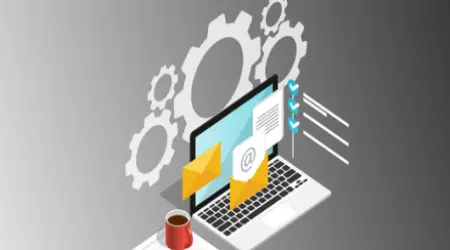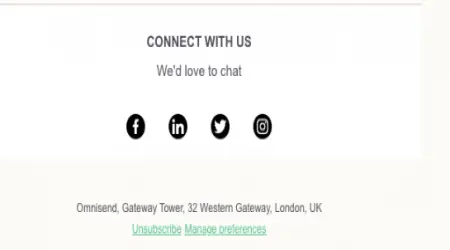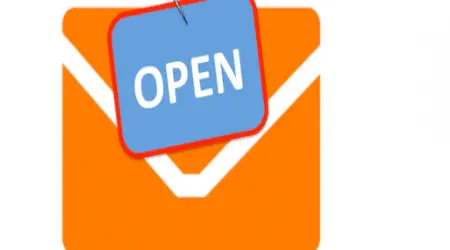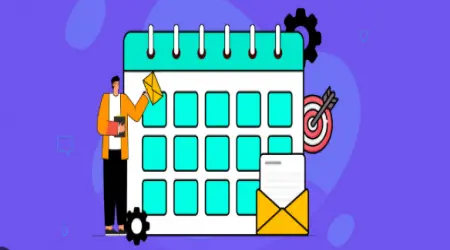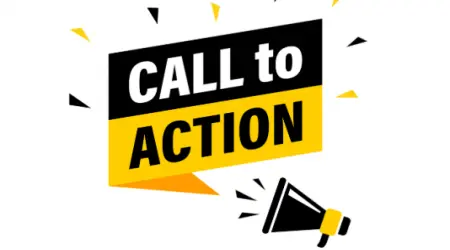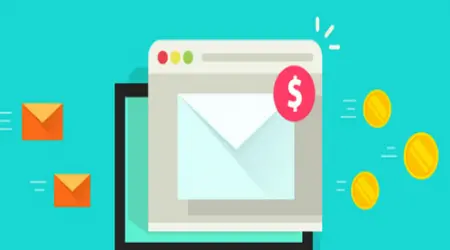

How Often Should You Email Your List?
How Often Should You Email Your List?
It’s the eternal question in email marketing: “How often should I email my subscribers?” Too often, and you risk unsubscribes and annoyance. Too infrequently, and you risk being forgotten.
Striking the right balance is key to building trust, driving engagement, and getting results from your email marketing efforts. In this article, we’ll break down how to find the perfect email cadence for your audience—based on your goals, industry, and subscriber behavior.
1. The Myth of the "Perfect" Frequency
There’s no universal rule for email frequency. Why? Because every list is different. Factors like industry, audience expectations, list source, and campaign goals all affect how often you should be emailing.
For example:
A daily deals site might email every day—and subscribers expect it.
A coach or consultant might send once a week—building deeper relationships.
A SaaS product may use a mix—onboarding series, updates, and promos.
Instead of copying someone else’s schedule, focus on one principle:
Consistency + Relevance > Frequency
2. Common Email Frequency Options
Let’s explore the most common sending frequencies and when each makes sense.
✅ Daily
Works well for: E-commerce, news, flash sales
Pros: High visibility, urgency-based
Cons: High unsubscribe risk if value isn't strong
✅ 2–3 Times per Week
Works well for: Content creators, personal brands, active newsletters
Pros: Top-of-mind presence
Cons: Content must be fresh and valuable
✅ Weekly (Most Common)
Works well for: Newsletters, SaaS, education
Pros: Predictable, manageable
Cons: Still requires consistent delivery
✅ Biweekly or Monthly
Works well for: B2B, nonprofits, small businesses
Pros: Lower fatigue
Cons: May reduce engagement or momentum
3. Factors That Affect Your Ideal Frequency
a. Subscriber Expectations
If you promise “daily tips,” deliver daily. If you say “weekly newsletter,” don’t ghost them for months.
Set expectations early—ideally on your opt-in form or welcome email.
b. Content Quality & Capacity
Can you deliver value at that frequency? Never sacrifice quality for quantity. One amazing email per week outperforms five weak ones.
c. List Source
Organic signups: Higher tolerance
Purchased/rented lists (not recommended): Very low tolerance
Freebie/giveaway signups: May require careful warming up
d. Lifecycle Stage
New subscriber? More emails to onboard and engage.
Loyal customer? Fewer, more personalized messages.
At-risk/inactive? Use a re-engagement campaign, not daily emails.
e. Type of Business
| Business Type | Suggested Frequency |
|---|---|
| E-commerce | 3–5x/week (with segmentation) |
| SaaS | 1–2x/week + automation |
| Coaches & Educators | Weekly or biweekly |
| Media/News | Daily or 5x/week |
| Nonprofits | Monthly + during campaigns |
4. What the Data Says (2025 Benchmarks)
Here’s what current industry studies reveal about frequency and engagement:
| Frequency | Avg. Open Rate | Avg. Unsub Rate |
|---|---|---|
| Daily | 15–20% | 0.4–1.2% |
| 2–3x/week | 20–25% | 0.2–0.5% |
| Weekly | 25–30% | 0.1–0.3% |
| Monthly | 18–25% | 0.05–0.2% |
The sweet spot for most businesses is 1–2 emails per week. But again, testing your own audience always beats global averages.
5. Smart Frequency Strategies
🛠 A. Let Subscribers Choose
Offer a “email preferences” center where subscribers can pick:
Frequency (daily, weekly, monthly)
Topics (news, sales, tips, updates)
Empowered subscribers are more likely to stay engaged.
🛠 B. Use Behavior-Based Triggers
Send more emails to engaged users, fewer to less active ones.
Examples:
Opened 3 emails in a row? Increase frequency.
No opens in 60 days? Trigger a re-engagement flow.
🛠 C. Drip Campaigns and Time-Based Sequences
For education, onboarding, or nurturing:
Day 1: Welcome
Day 2: Tip/lesson
Day 4: Case study
Day 7: Call to action
Time-based sequences build momentum without fatigue.
🛠 D. Segment by Engagement
Group your list into:
Super-engaged (email more frequently)
Warm/neutral (normal cadence)
Inactive (reduce frequency or pause)
6. Signs You’re Emailing Too Often
📉 Declining open or click-through rates
🚨 High unsubscribe or spam complaints
😴 Subscriber fatigue (no engagement despite consistent sending)
❌ Negative replies or feedback
If you’re seeing these, dial it back, improve content relevance, or re-segment your list.
7. Signs You’re Emailing Too Little
Your brand is forgotten by the time you send again
Low conversions despite a healthy list size
Subscribers ask, “Wait… who are you again?”
You miss opportunities (promos, launches, updates)
If you rarely email, your list may go cold. Then when you do email, it feels intrusive.
8. Real-World Examples
🛒 E-commerce Brand
Sends 4x/week segmented by category (e.g., Men, Women, Clearance, VIPs)
Uses automation for:
Abandoned carts
Post-purchase
Re-engagement
Result: 38% of total revenue from email.
📚 Online Course Creator
Weekly newsletter with story + tip
Launch sequences 2x/year with higher frequency (daily for 7 days)
Replays and scarcity reminders
Result: Launch open rates over 40%, low unsubscribes.
🧠 SaaS Startup
Weekly product updates
Monthly feature highlight
Personalized onboarding flow (6 emails in 10 days)
Result: 2x higher retention rate for users who completed onboarding emails.
9. Testing Frequency: The Right Way
Don’t just guess—test!
A/B Test Example:
Group A: Receives 1 email/week
Group B: Receives 3 emails/week
Measure:
Open rate
Click-through rate
Unsubscribes
Conversions
Also test:
Time of day
Day of week
Sequence pacing (e.g., 2–1–3 day gaps)
📈 Use tools like Mailchimp, ConvertKit, Klaviyo, or ActiveCampaign to automate and analyze.
10. Final Thoughts: Match Your Value to Your Frequency
You shouldn’t ask, “How often can I email without annoying people?”
Instead ask, “How often can I provide real value?”
If every email helps, inspires, or educates—subscribers will welcome it.
If every email sells or shouts—you’ll lose them fast.
Email is a relationship, not a broadcast.
Respect that relationship, and your frequency will feel just right.
